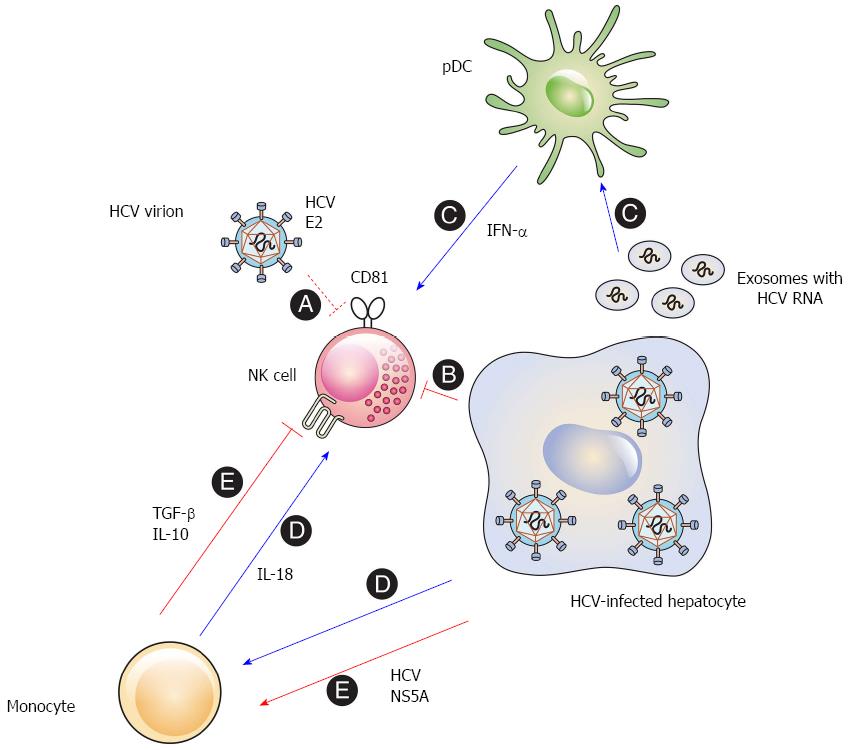Copyright
©The Author(s) 2016.
World J Gastroenterol. Jan 28, 2016; 22(4): 1449-1460
Published online Jan 28, 2016. doi: 10.3748/wjg.v22.i4.1449
Published online Jan 28, 2016. doi: 10.3748/wjg.v22.i4.1449
Figure 1 Interactions of natural killer cells with hepatitis C virus-infected hepatocytes and accessory cells.
A: HCV virions may inhibit NK cells by cross-linking of CD81 on the NK cells with the HCV E2 protein, if the HCV virions are immobilized and concentrated; B: Direct cell-to-cell contact of NK cells with HCV-infected hepatoma cells reduces functional capacity of NK cells by downregulating the activating receptors NKG2D and NKp30; C: Exosomes harboring the HCV RNA are released from HCV-infected hepatoma cells and stimulate pDCs to secrete IFN-α which activates NK cells; D: The interaction with hepatoma cells containing HCV replicons stimulates monocytes to secrete IL-18 which activates NK cells; E: The HCV NS5A protein from HCV-infected hepatoma cells stimulates monocytes to secrete IL-10 and TGF-β which suppress NK cell function. HCV: Hepatitis C virus; NK cell: Natural killer cell; pDC: Plasmacytoid dendritic cell; IFN: Interferon; IL: Interleukin; TGF: Transforming growth factor; E2: Envelope 2 protein; NS5A: Nonstructural 5A protein. NKG2D: Natural killer group 2D.
- Citation: Yoon JC, Yang CM, Song Y, Lee JM. Natural killer cells in hepatitis C: Current progress. World J Gastroenterol 2016; 22(4): 1449-1460
- URL: https://www.wjgnet.com/1007-9327/full/v22/i4/1449.htm
- DOI: https://dx.doi.org/10.3748/wjg.v22.i4.1449









